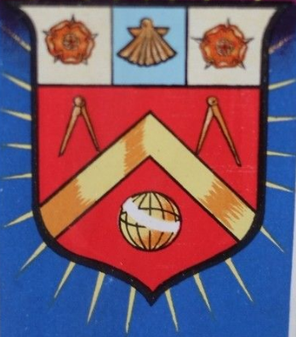Related Research Articles
In British politics, an affiliated trade union is one that is linked to the Labour Party. The party was created by the trade unions and socialist societies in 1900 as the Labour Representation Committee and the unions have retained close institutional links with it.

The Transport and General Workers' Union was one of the largest general trade unions in the United Kingdom and Ireland – where it was known as the Amalgamated Transport and General Workers' Union (ATGWU) to differentiate itself from the Irish Transport and General Workers' Union – with 900,000 members. It was founded in 1922 and Ernest Bevin served as its first general secretary.
Craft unionism refers to a model of trade unionism in which workers are organised based on the particular craft or trade in which they work. It contrasts with industrial unionism, in which all workers in the same industry are organized into the same union, regardless of differences in skill.

Sidney Hillman was an American labor leader. He was the head of the Amalgamated Clothing Workers of America and was a key figure in the founding of the Congress of Industrial Organizations and in marshaling labor's support for President Franklin D. Roosevelt and the New Deal coalition of the Democratic Party.
The Amalgamated Society of Carpenters and Joiners (ASC&J) was a New Model Trade Union in the 1860s in the United Kingdom, representing carpenters and joiners.

The Union of Construction, Allied Trades and Technicians (UCATT) was a British and Irish trade union, operating in the construction industry. It was founded in 1971, and merged into Unite on 1 January 2017.

The General Federation of Trade Unions (GFTU) is a national trade union centre in the United Kingdom. It has 35 affiliates with a membership of just over 214,000 and describes itself as the "federation for specialist unions".

The Amalgamated Society of Woodworkers (ASW) was a British trade union representing carpenters, joiners and allied trades. The ASW was formed in 1921 by the amalgamation of two smaller unions. It was itself merged into the Union of Construction, Allied Trades and Technicians in 1971.
The Consulting Association (TCA) was a controversial UK business, based in Droitwich, which, from 1993 to 2009, maintained a database of British construction workers and became implicated in a "blacklisting" scandal, which is ongoing. Revelations about the database resulted in the business being shut down, the Employment Relations Act 1999 (Blacklists) Regulations 2010, a Parliamentary enquiry, High Court actions leading to compensation payouts valued at between £50m and £250m in total, and a series of cases being brought to the European Court of Human Rights.

The Amalgamated Society of Boilermakers, Shipwrights, Blacksmiths and Structural Workers (ASB) was a trade union in the United Kingdom. Many of its members worked in shipbuilding, in which industry it was the leading trade union, while over time it also developed strength in engineering and construction.
Frank Wolstencroft CBE was a British trade union leader.
Peter Edward Carter was a British trade unionist.
The General Council of the Trades Union Congress is an elected body which is responsible for carrying out the policies agreed at the annual British Trade Union Congresses (TUC).

Francis Chandler was a British trade unionist.
Albert Williams was a British trade unionist.
Alan Ritchie is a former Scottish trade unionist.
Leslie Walter Wood was a British trade unionist.
The Amalgamated Society of Woodworkers of South Africa (ASW) was a trade union representing carpenters, joiners and those in related trades in South Africa.

Graham Stevenson was a British communist, trade union leader, and writer who specialised in British socialist and labour activist biographies. He was one of the most influential trade union leaders in Britain, becoming the national secretary of the TGWU in 1999. As a founder and later president in 2009 of the European Transport Union Federation, he helped organise strikes across European docks in 2003, forcing the European Union to stall privatisation plans. Between 2007 and 2008, Stevenson played a key part in the negotiations that formed Unite the Union, the largest trade union in the United Kingdom. He also served on the Executive and Political Committee of the Communist Party of Britain (CPB), and served as the treasurer of the Marx Memorial Library from 2013 to 2019.
Cleston Taylor (1926–2010) was a communist and Black civil rights activist, political prisoner, and trade unionist, who was most notable for his activities in Jamaica and the United Kingdom. Taylor was also a founding member of the British organisation Caribbean Labour Solidarity, and a member of the Communist Party of Great Britain. He held close personal connections with many leading Black British and Caribbean civil rights leaders such as Billy Strachan, Trevor Carter, Richard Hart, and Claudia Jones.
References
- ↑ " UCATT - Building Worker -Spring 2010
- ↑ Wall, Christine; Clarke, Linda; McGuire, Charlie; Muñoz-Rojas, Olivia (2012). Building the Barbican 1962 – 1982: taking the industry out of the dark ages (PDF). London: University of Westminster. ISBN 978-0-903109-34-5. Archived from the original (PDF) on 7 September 2012. Retrieved 2 May 2014.
- ↑ Construction.co.uk
- 1 2 www.grahamstevenson.me.uk
- ↑ International Socialism, No.75, February 1975, pp.22-27.
- ↑ Building workers: The great strike of 1972